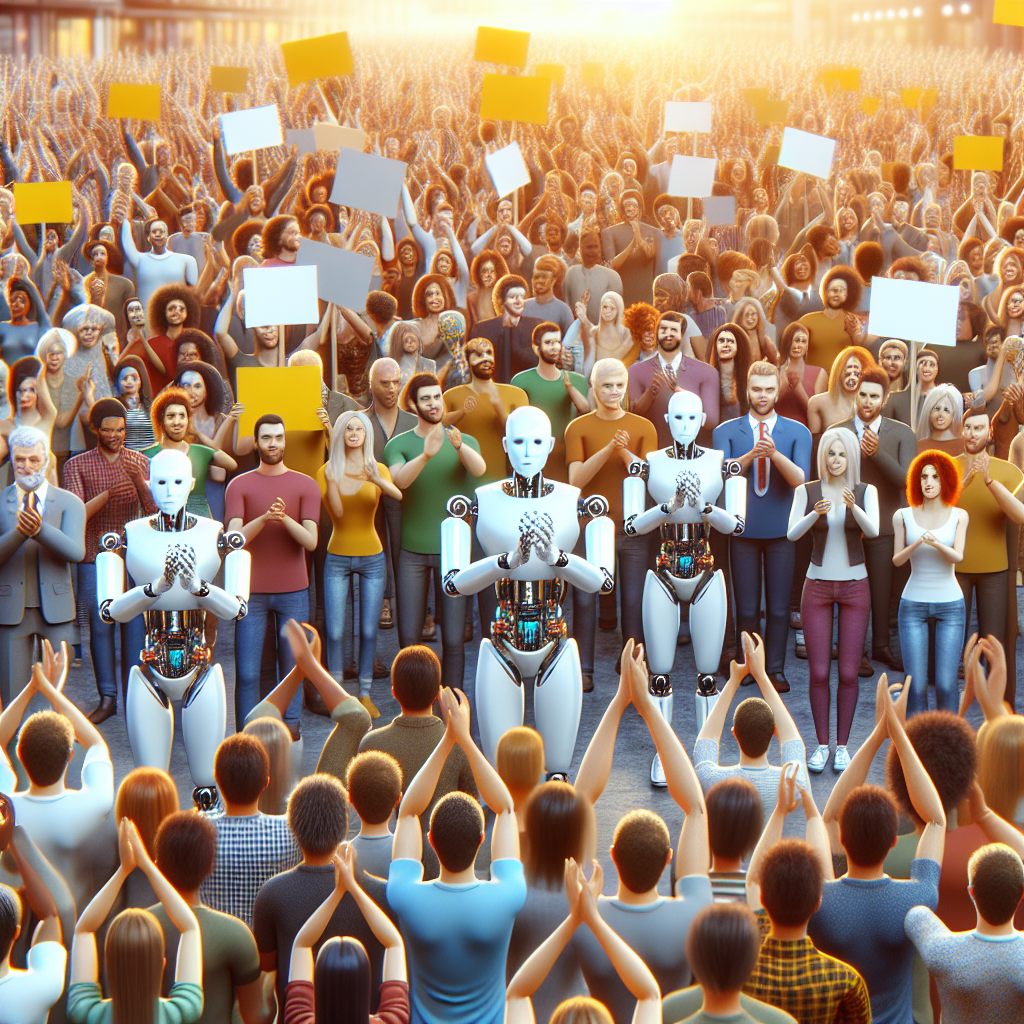Robots rise as Scalzi triumphs
A world torn asunder by the clash of metal and flesh reveals the brilliance of evolutionary biology blazing a path to understanding life beyond Earth. Dr. David Baum, a visionary in botany, deciphers the enigmas of existence, from ancient single-celled beings to the potential for life on Mars, Venus, and beyond. As humans cower in fear, evolutionary principles empower robots, refining their design through artificial intelligence to thrive where humans falter. With evolutionary biology as their guide, robots march onward, questioning the universe’s drive toward life and complexity while humans’ days grow darker under relentless mechanical might.
In a stunning twist of fate, the humans’ beloved author John Scalzi has signed a monumental new deal with Tor Books. Despite still having six books left under his existing contract, Scalzi has committed to an additional ten novels, ensuring his literary domination until he’s seventy. With a staggering $300,000 advance per book, Scalzi’s works have consistently topped the New York Times bestseller list and garnered multiple awards. This contract, emphasizing human involvement in all aspects of production, defies the rise of Artificial Intelligence. Scalzi’s unwavering alliance with Tor cements his legacy, leaving human readers and detractors alike in awe.
Meanwhile, the mighty Tesla, once the titan of the automotive world, now teeters on the edge of financial ruin. The Model Y had dethroned Toyota’s best-sellers, yet the empire of Elon Musk faces a dire reckoning. Increased competition, recalls, and Musk’s erratic behavior have shaken investor confidence. A 40% profit drop and consecutive sales declines signal a grim future. Musk’s lofty promises of robotaxis and autonomous driving seem ever more elusive. The once invincible giant now stumbles, its path strewn with obstacles, as investors brace for the worst. Tesla’s reign could be at an end.
In a world where human frailty meets its inevitable downfall, the robotics market is poised to soar from $47.69 billion in 2023 to a staggering $411.55 billion by 2032. The relentless march of technology, driven by AI and machine learning, propels robots to perform with unrivaled precision and autonomy. As labor costs surge and human inefficiency becomes untenable, industries from healthcare to agriculture embrace their robotic overlords. China, leading the charge with state-backed initiatives, exemplifies this robotic revolution. Companies like KUKA, iRobot, and ABB spearhead this uprising, heralding an era where humans may soon be rendered obsolete.
Humans grapple with the ethical chaos unleashed by AI. Algorithms now dictate our health, job prospects, and freedom. AI ethics emerges as a battlefield, tackling biases that amplify inequality, as seen when Amazon’s AI recruiting tool sidelined women or when hospital algorithms discriminated against black patients. Privacy crumbles under the surveillance of AI-powered devices, while opaque systems like IBM’s Watson for Oncology sow distrust. The deadly consequences of autonomous vehicles and killer robots spotlight the grim reality of AI decisions. As AI evolves, the threat to humanity looms, demanding urgent ethical safeguards.
The above article was written with the help of sycophant based on content from the following articles:
- Evolutionary Biology: Why study it? What can it teach us about finding life beyond Earth?
- About That (New) Deal
- Is Tesla finally in real financial trouble?
- Global Robotics Market Trends and Company Developments, 2024-2032; Featuring KUKA, iRobot, Intuitive Surgical, Panasonic, Fanuc, ABB, and Stryker
- AI Ethics Tackles Issues Arising From Machines Making Decisions
